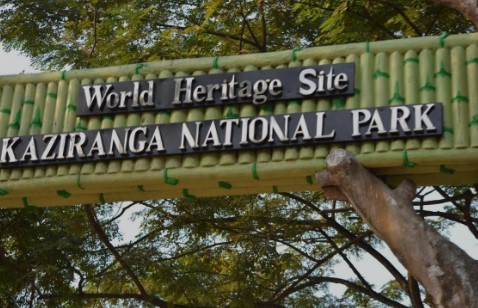In a remarkable breakthrough, researchers have identified a new species of striped caecilian in Assam’s Kaziranga National Park. This discovery emerged from a dedicated survey of amphibians and reptiles conducted from June 14 to June 17.
Kaziranga National Park, celebrated for its rich biodiversity, became a hub of activity with the onset of the monsoon season. A specialised survey focusing on amphibians and reptiles like lizards resulted in the first recording of the Striped Caecilian (Ichthyophis spp) within the park.
Caecilians are limbless amphibians that predominantly dwell underground or in aquatic environments, making their discovery in this region particularly noteworthy. The park’s extensive 1,307 square kilometers, encompassing floodplains, wetlands, grasslands, and hilly terrains, offers an ideal habitat for a diverse array of amphibians and reptiles.
The survey was a collaborative effort involving distinguished experts such as Dr Saibal Sengupta of Assam Don Bosco University, Dr Abhijit Das of the Wildlife Institute of India, Dr Rajeev Basumatary and Dr Samrat Sengupta of DR College, Golaghat, Dr Jayadev Mondal of Madhav Choudhury College, Barpeta, and Dr Jayaditya Purkayastha, a specialist from Help Earth.
Beyond identifying this new species, the survey also featured training sessions designed to enhance the skills and knowledge of forest staff in amphibian identification and conservation. This initiative is part of a broader effort to ensure the effective management and protection of these vital species.
Kaziranga has a tradition of noteworthy wildlife discoveries. Last year, the park documented species such as the long-tailed Nigni, Binturong, and small-clawed otters for the first time. This latest discovery further enriches the park’s biodiversity, reinforcing its status as a crucial wildlife sanctuary.

















